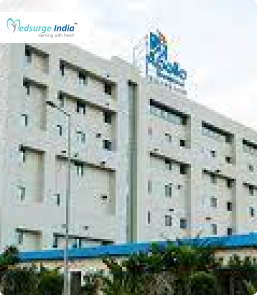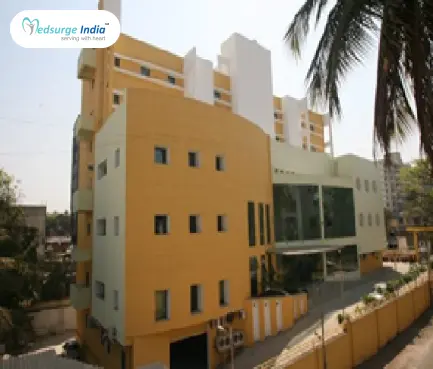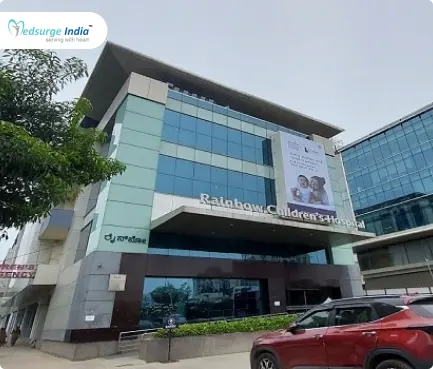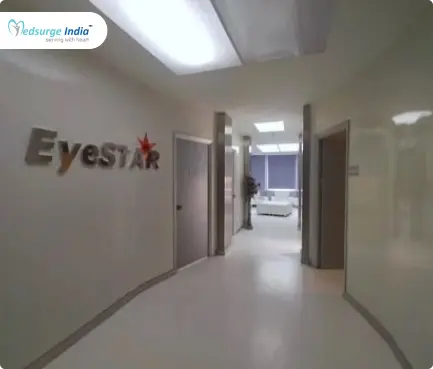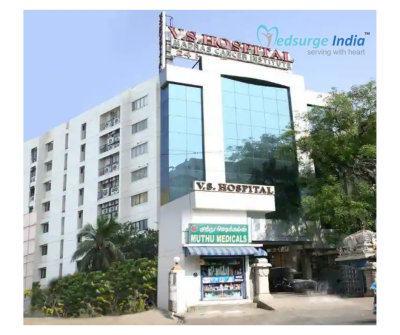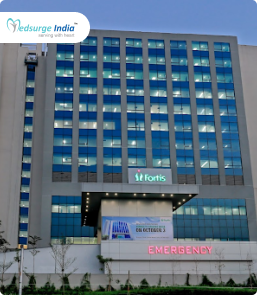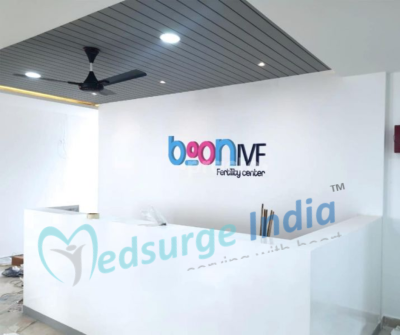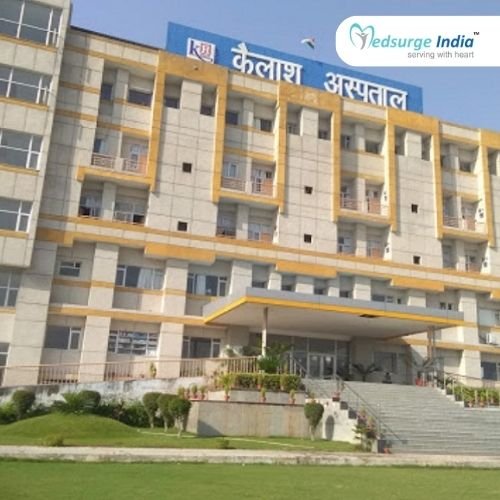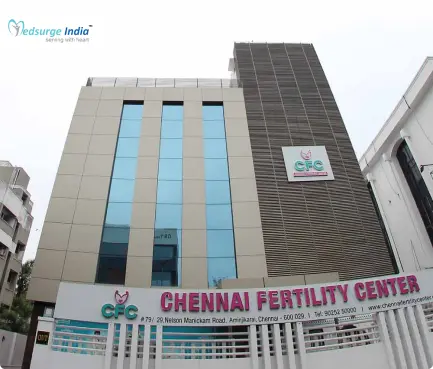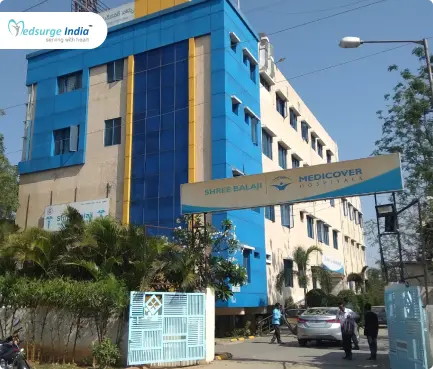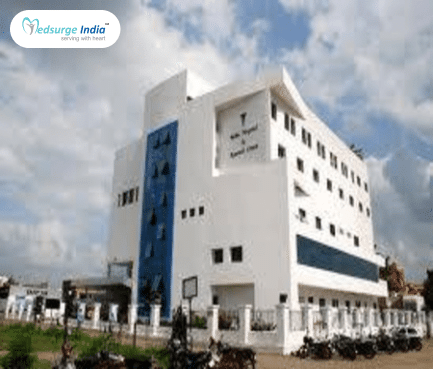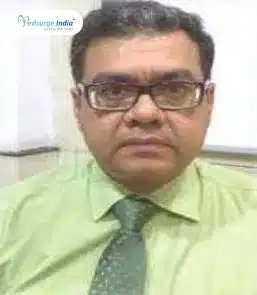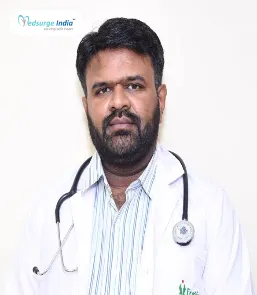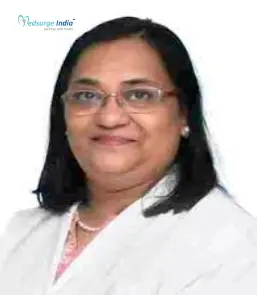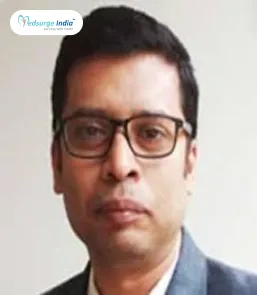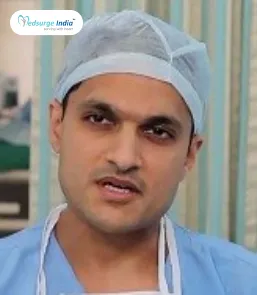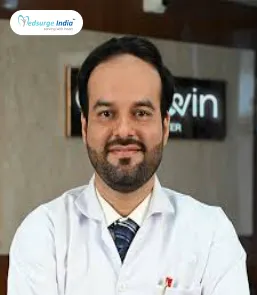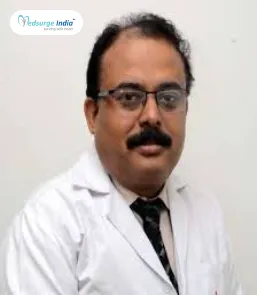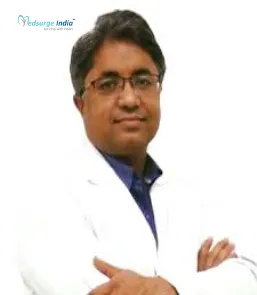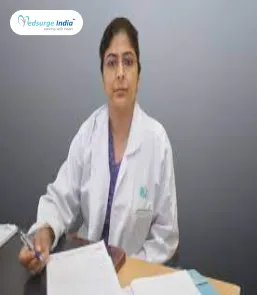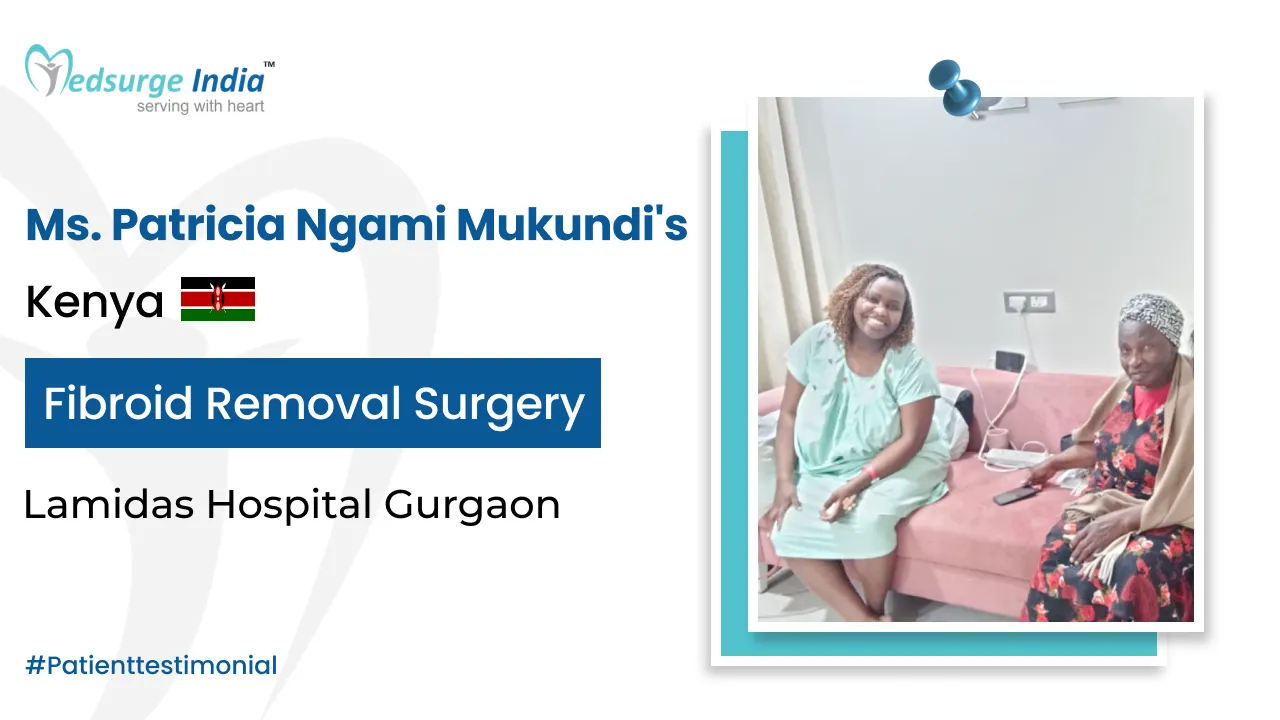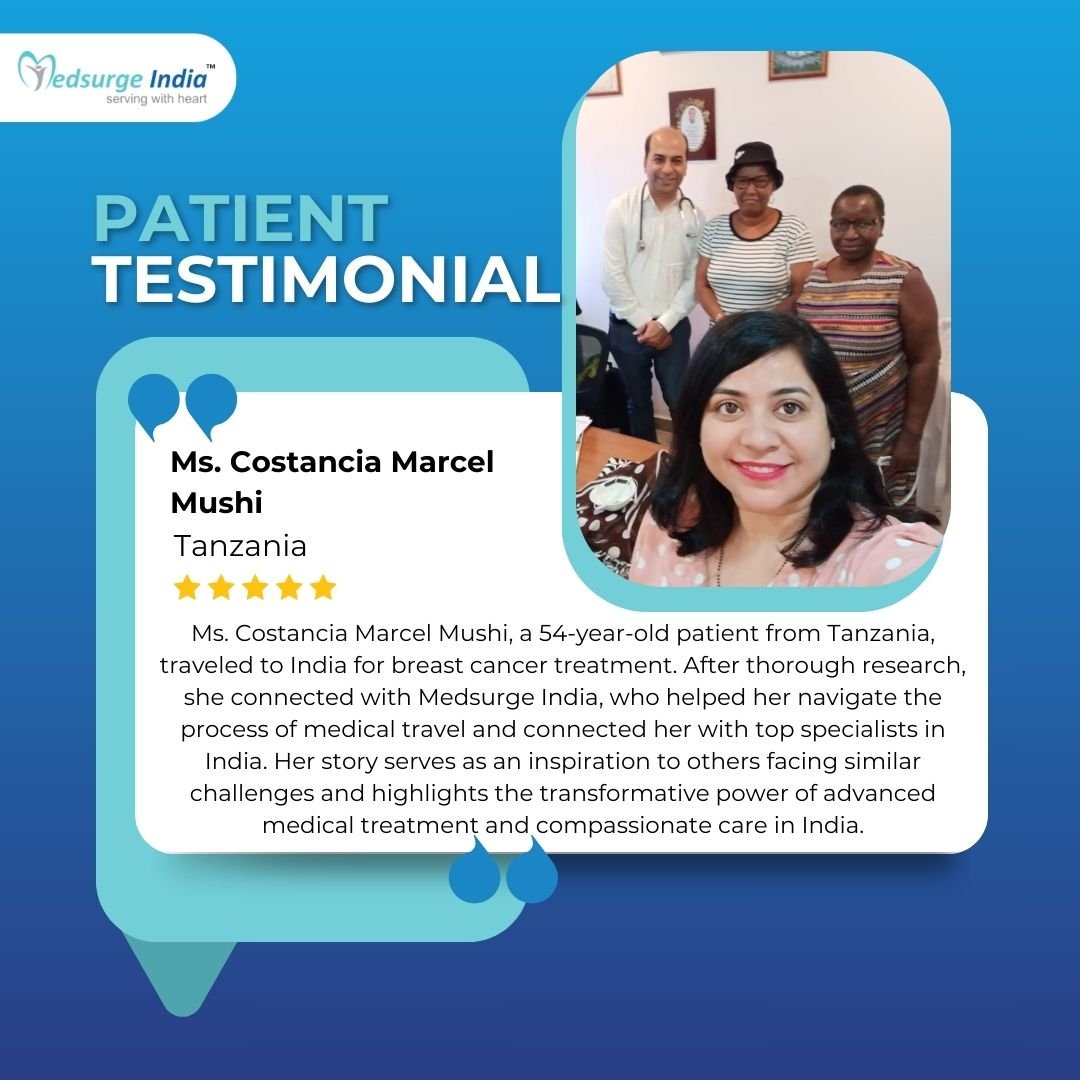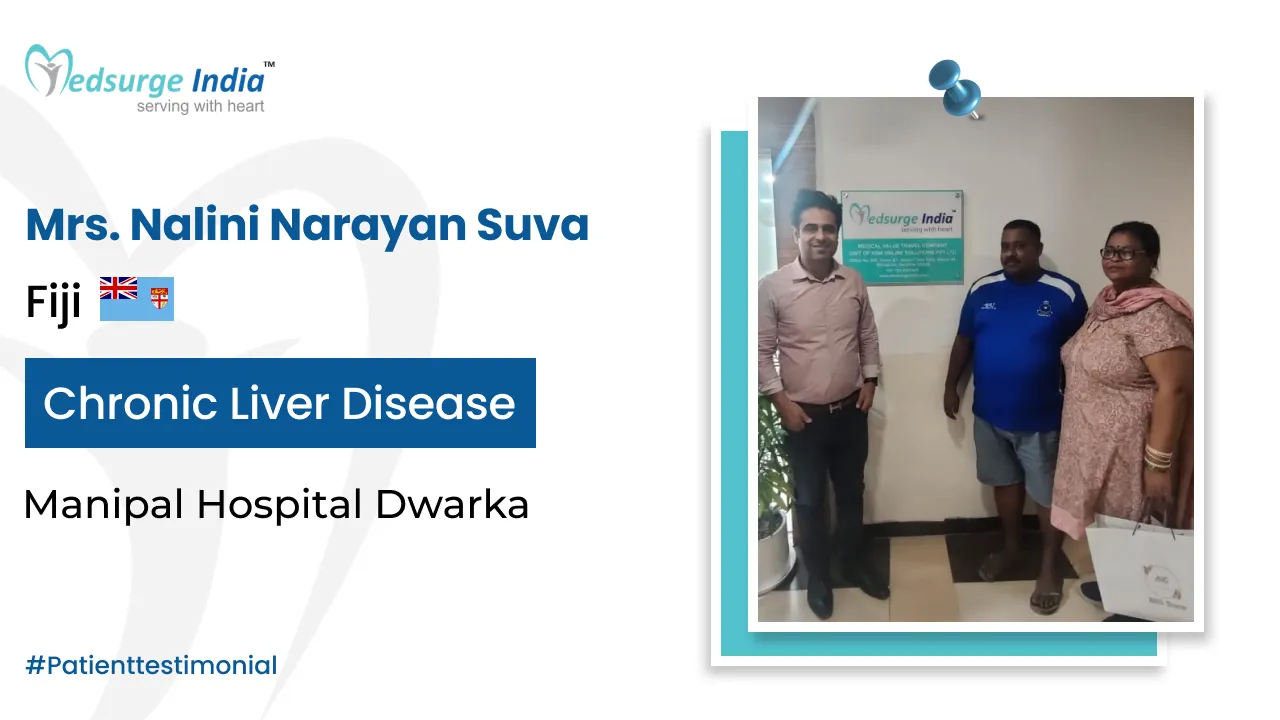
It is a cancer that develops inside the prostate gland, and it is one of the most common types of cancer. The prostate is a small gland in men that resembles a walnut and secretes seminal fluid, which nourishes and transports sperm.
Among all cancers, prostate cancer is the most prevalent in men. Numerous prostate cancers have a moderate growth rate and are localized to the prostate gland, where they may not pose a major threat. Although some prostate cancers spread slowly and may require little to no therapy, others are aggressive and can spread very fast.
Prostate Cancer treatment in India is very low compared with well-known nations like the Us, the Uk, Europe, etc. Patients seeking prostate cancer treatment in India have access to the best facilities, which provide affordable healthcare packages, high-quality medical equipment, and the assurance of first-rate medical experts.
What Is Prostate Cancer
When bodily cells start to proliferate unchecked, cancer develops. Any cell in the body has the potential to develop into a cancer cell and spread to other parts of the body. When cells in the prostate gland begin to grow out of control, prostate cancer develops. Only men have the prostate gland in their bodies. It produces a portion of the fluid that is found in semen.
The prostate is located in front of the rectum, the final segment of the intestines, and underneath the bladder, the hollow organ where pee is stored. Seminal vesicles, a group of glands just behind the prostate, provide the majority of the fluid for semen. The urethra, the tube that exits the body through the penis and delivers urine and sperm, passes through the center of the prostate.
Types of Prostate Cancer
- Localized cancer contained inside the prostate
- Locally advanced cancer
- Recurrent cancer comes back after previous therapy
- Cancer that has spread to other parts of the body is referred to as metastatic cancer.
Risk Factor for Prostate Cancer
- Age – as one gets older the odds of getting prostate cancer can increase
- Ethnicity – research has shown that prostate cancer is more common in the African countries.
- Family history – Risk increases if one of one’s first-degree relatives has prostate cancer.
- Contributing factors include diet and obesity.
Signs and Symptoms
Clinically the patient presents with symptoms of:
- Urination problems, difficulty in commencing urination, blood in the urine
- Excessive Amount of PSA (protein-specific antigen) in the bloodstream
- In prostate cancer cases with metastatic disease, bone fractures are common.
- There may be urinary /fecal incontinence in complex cases
Tests and Diagnosis for Prostate Cancer Treatment in India
- Medical health history of the Individual taken into Consideration
- Prostate cancer Is Often detected by PSA (prostate-specific antigen) test of blood
- DRE– Digital Rectal Examination and Transrectal ultrasound Additionally Conducted which Assist Identification
- A biopsy is Generally Conducted to confirm Identification
- To Ascertain the stage of cancer, Cancer Research Such as bone CT scan or MRI scan
Treatment for Prostate Cancer
- Depending on how rapidly the prostate cancer has progressed
- The goal of treatment in the early phases is to cure the patient.
- In advanced stages, the goal is to prolong life and reduce symptoms.
- Health and age of the patient
Here are different types of Prostate Cancer Treatment such as:
- Monitoring for changes or progress in supportive care
- Particle therapy
- Teletherapy
- Brachytherapy
- Radiation therapy
- Radiosurgery
- Laparoscopic radical prostatectomy
- Radical retropubic prostatectomy
- Hormone associated therapy
- Chemotherapy
- Hormone and urinary retention medications
Screening at regular intervals to carefully track the condition of the patient’s prostate, with no immediate treatment.
Know More – Cancer Treatment Cost in India
Active Surveillance
Screening at regular intervals to carefully track the condition of patient’s prostate, with no immediate treatment.
Get Free Cost Estimation
Procedure
Surgery
The principal advantage of the operation is that the prostate with all the cancer is eliminated.
Prostatectomy: Normally done for:
Clinically Localized cancer.
- If age young and fast-growing tumor.
- This physician removes the whole prostate gland and might eliminate surrounding cells, and lymph nodes along with seminal vesicles.
- Taking out the lymph node lowers the chance of cancer recurrence.
- It might be carried out laparoscopically or from an open strategy.
After Surgery
- Monitoring in recovery
- Drain put for excess fluids
- Catheter put in
- To reduce the risk of clot formation stockings and pumps are used.
- In 7-10 days cystogram performed and the catheter removed
- Within 2-4 weeks return to normal activities
- Medication is given to help erection
Risks Associated with Surgery
- Infection
- Blood clots
- Damage to nearby organs
- Erectile dysfunction
- Urinary incontinence
Radiation
- This treatment uses high energy beams of X- rays to treat prostate cancer from damaging cells. It’s useful in cases when:
- When cancer is low grade and Restricted locally into the prostate
- As Therapy of choice Together with hormonal Treatment for cancer Which has Become surrounding tissue
- For cancer that recurs
- For metastatic advanced cancers for palliative relief
Types of Radiation Therapy
Brachytherapy – also called seed implantation, here in little radioactive pellets are put on the prostate and they provide their radiation in a low dose over a few months or weeks.
External Beam Radiation also called EBRT where beams are concentrated on the prostate from outside the body.
After Effects of Radiation
- Bowel problems– diarrhea, blood in the stool
- Urinary symptoms– radiation cystitis, urinary incontinence
- Erection problems
- Fatigue
- Lymphedema
Hormonal Therapy
- It doesn’t cure, it is a temporary treatment and only slows down the cancer growth or is employed as palliative treatment in metastatic instances.
- It intends to reduce the production or block activity of the hormone, which leads to destroyed prostate cancer tissues and shrinks the prostate gland.
- Hormone treatment could be provided alone or mixed with other therapy.
Types of Hormone Therapy
- Orchiectomy: Surgical removal of testicles.
- Medication treatment: block signal from mind consequently lower endocrine, effects can be reversible.
- LH-RH Analogue treatment – blocks the production of hormones.
- Anti Androgen Treatment – cubes activity of hormone used before LHRH treatment to avoid androgen flare.
After Effects of Hormonal Therapy
- Hot flushes
- Reduced sex drive
- Decreased ability to have erections
- Fatigue
- Decreased muscle strength
- Can cause bone thinning
- Can lead to dyslipidemia
Read More – Top 10 Oncologists in India
Prostate Cancer Treatment Cost in India
- The average cost of Prostate cancer Surgical in India ranges from Rs. 1,00,000 to Rs. 7,50,000. This price typically includes a consultation with an oncologist, necessary preoperative tests, and the prostate cancer removal surgery itself. However, please note that accommodation and transfers are not included in this cost.
- After the patient prostate cancer treatment in India, the patient must remain in the hospital for 2-3 days and 14 times beyond the hospital.
- Tests Necessary to diagnose Prostate Cancer contain Digital Rectal Exam (DRE), Prostate-Specific Antigen(PSA) test, Ultrasound, and MRI Fusion.
Some Factors that Affect Prostate Cancer Treatment Cost in India
For prostate cancer treatment in India, the cost of the individual is dependent upon a number of factors such as:
- The clinic, the individual chooses.
- Type of Space
- Fee for the Group of physicians
- Standard evaluations and diagnostic processes.
- Price of Chemotherapy/ radiotherapy
- Price of stem cell transplantation
- Cost of supportive therapy
Best Prostate Cancer Hospitals in India
1. Max Hospital Saket
2. Fortis Hospital Gurgaon
3. Global Hospital Chennai
4. MGM Healthcare, Chennai
5. Fortis Hospital Kolkata
6. Apollo Hospital Delhi
7. Jaslok Hospital Mumbai
8. Artemis Hospital Gurgaon
Why do Individuals Prefer to have Prostate Cancer Treatment in India
The country has some of the best medical care facilities and services in Asia, making medical tourism in India very popular. For prostate cancer treatment in India, the hospitals provide the best care for patients with prostate cancer by the top prostate cancer surgeons and specialists and the hospital also provides all types of disease-related surgeries using advanced technology. Also, the prostate cancer treatment cost in India is much more affordable as compared to other states or nations around the world. An international patient can expect to pay 50-60% less for a total prostate cancer treatment cost in India.
Hospitals that treat prostate cancer treatment in India provide comprehensive appropriate treatment, including comprehensive pre-operative evaluations, minimally invasive surgical options, and post-operative rehabilitation programs. Patients can expect personalized treatment, individualized attention, and compassionate care at these medical facilities. The hospitals are accredited by top international organizations such as the National Accreditation Board for Hospitals and Healthcare Providers (NABH) or the Joint Commission International (JCI).
The Most Important Frequently Asked Questions
Q: What Is the Approximate Prostrate Cancer Treatment Cost in India?
A: The Prostate Cancer Surgery Price from India is USD 4900 to USD 5500. It is dependent on other factors also such as the number of travelers, source country of travel, and the number of days that will be spent in India.
Q: Where Is the Prostate Gland and What Are Its Functions?
A: Prostate is a big gland between the urethra and the bladder, works to generate fluid that keeps the sperm healthy and aids fertilization.
Q: What Is PSA?
A: Protein Specific Antigen (PSA) is a protein produced by cells of the prostate gland, their degrees help identify prostate ailments.
Q: What Is the Meaning of Benign Prostatic Hyperplasia?
A: It’s a condition wherein there is an overgrowth of prostate tissue that pushes against the urethra and bladder. It’s a noncancerous condition.
Q: Can I Prevent Prostate Cancer?
A: There’s not any certain way to avoid prostate cancer, however with a healthy lifestyle and regular exercise reduces the danger of growing it.
Q: What Are the Uses of Hormone Therapy in Prostate Cancer?
A: Hormone Treatment is used:
- Once the patient Can’t go in for surgery
- Before chemotherapy or radiation to maximize results of therapy
- After chemotherapy or radiation
- Advanced esophageal cancer reduces complications and prolongs survival
Q: How Many Radiation Treatments Are Needed for Prostate Cancer Patients?
A: Radiation is approximately given 5 days a week for 4-8 weeks, the total dose of radiation depends on the size of the prostate, general health.
Q: What Is the Prognosis of Prostate Cancer?
A: Prostate cancer is among frequent cancer affecting men, it’s treatable if diagnosed prior to metastasis, routine screening is essential in diagnosing premature.
Q: What Is the Gleason Score?
A: It is a method of esophageal cancer cells, ranges from 2-10 suggesting just how likely a tumor will spread. A low Gleason score means cancer cells like normal prostate glands and its not as likely to disperse, nevertheless, a higher Gleason score implies tumor is much more likely to disperse.
Q: How Will I Understand That My Treatment Is Working Positively?
A: Regular Monitoring of PSA is an indicator marker of how the treatment is responding.
Q: What Is Erectile Dysfunction?
A: Erectile dysfunction is the inability to have an erection, nerves which control the blood flow to the penis are damaged by the treatment of prostate cancer radiation/surgery as they surround the prostate gland.
Q: Is There a Warning Sign Which May Signify the Recurrence of Cancer?
A: The first and foremost sign will be a rise in the PSA level in blood.
Top Hospitals for Prostate Cancer Treatment in India
Top Doctors for Oncology and Oncosurgery
Dr. Uma Dangi
Consultant
Experience: 13 years of experience
Fortis Hospital, Mulund, Mumbai
Mumbai, India
Dr. Suvadip Chakrabarti
Consultant
Experience: 9 years of experience
Apollo Gleneagles Hospital Kolkata
Kolkata, India
Dr. Sharadwat Mukherjee
Consultant
Experience: 11 years of experience
AMRI Hospital, Kolkata (Dhakuria)
Kolkata, India
Dr. Himanshu Shah
Consultant
Experience: 18 years of experience
Nanavati Super Specialty Hospital Mumbai
Mumbai, India
Dr. Joydeep Chakrabartty
Consultant
Experience: 15 years of experience
HCG EKO Cancer Centre, Kolkata
Kolkata, India
Dr. Sampath Kumar M.N.
Consultant
Experience: 10 years of experience
Manipal North Side Hospital, Malleshwaram, Bengaluru
Bangalore, India
Dr. Itesh Khatwani
Senior Consultant
Experience: 13+ years of experience
Narayana Multispeciality Hospital, Rakhial, Ahmedabad
Ahmedabad, India
Dr. Boman Nariman Dhabhar
Senior Consultant
Experience: 31 years of experience
Fortis Hospital, Mulund, Mumbai
Mumbai, India
Dr. Vivek Aggarwal
Senior Consultant
Experience: 15 years of experience
BLK Super Speciality Hospital, New Delhi
New Delhi, India
Dr. Rishik Raj Pathak
Experience: 8+ years of experience
Narayana Superspeciality Hospital, Amingaon, Guwahati
Guwahati, India
Dr. Niti Raizada
Director & HOD-Oncology Department
Experience: 21+ years of experience
Bangalore, India
Dr Suchanda Goswami
Consultant
Experience: 15 years of experience
AMRI Hospital, Kolkata (Dhakuria)
Kolkata, India

